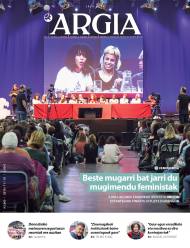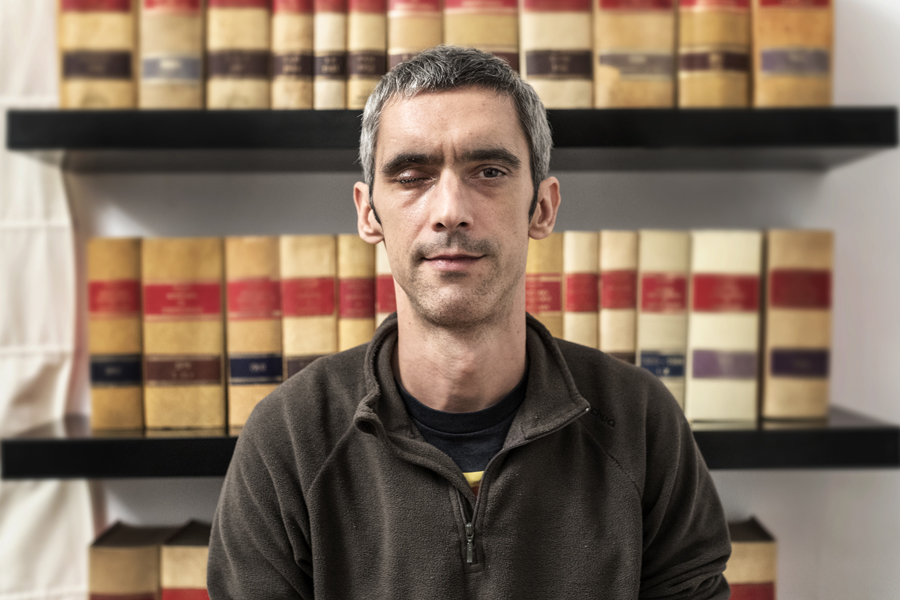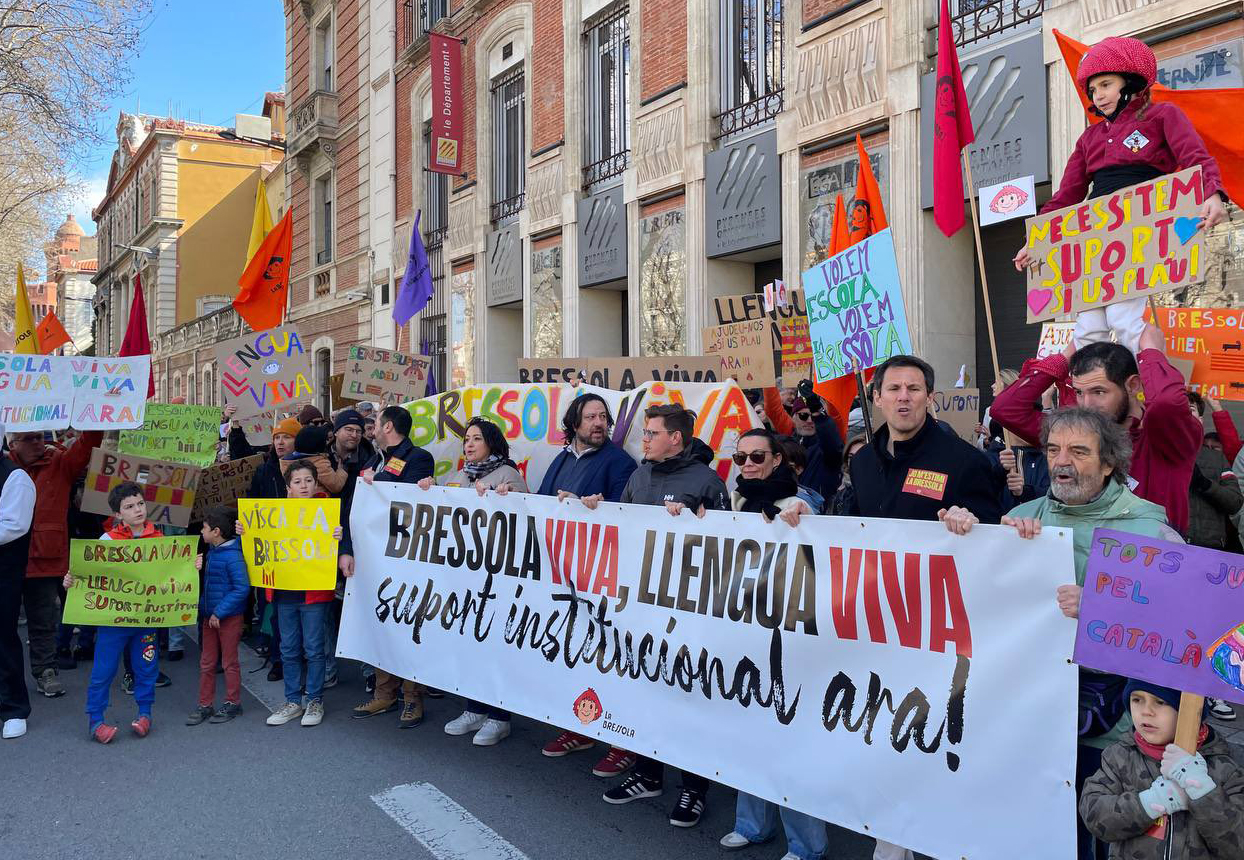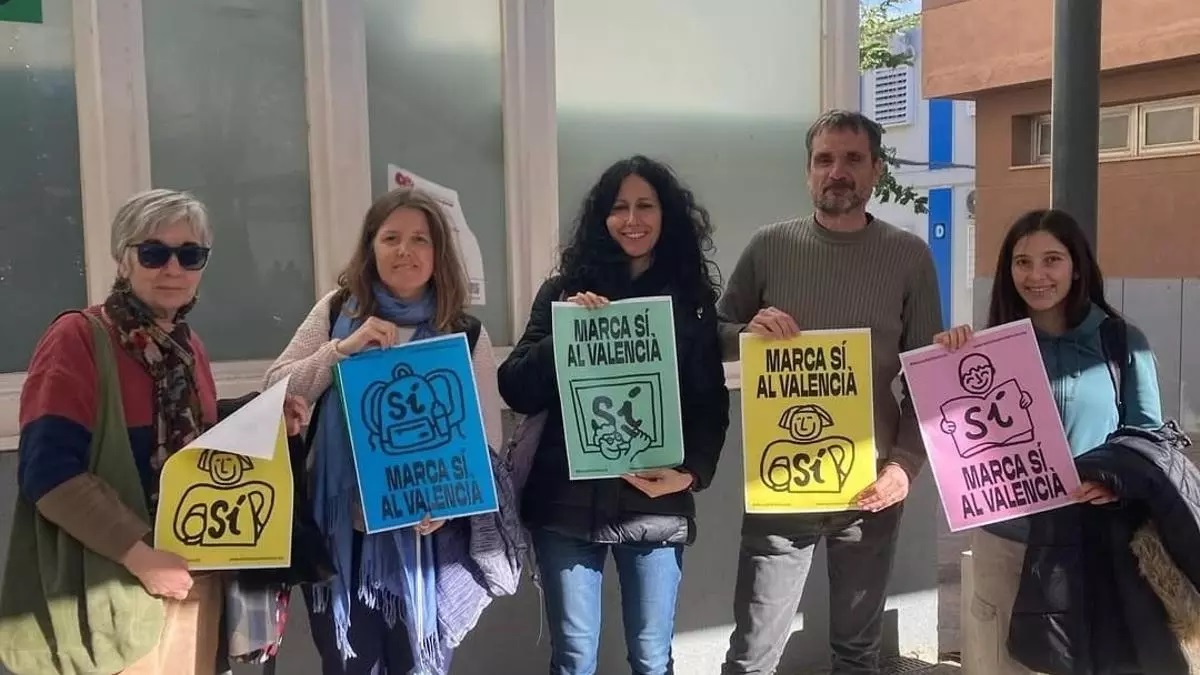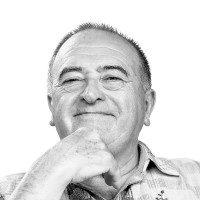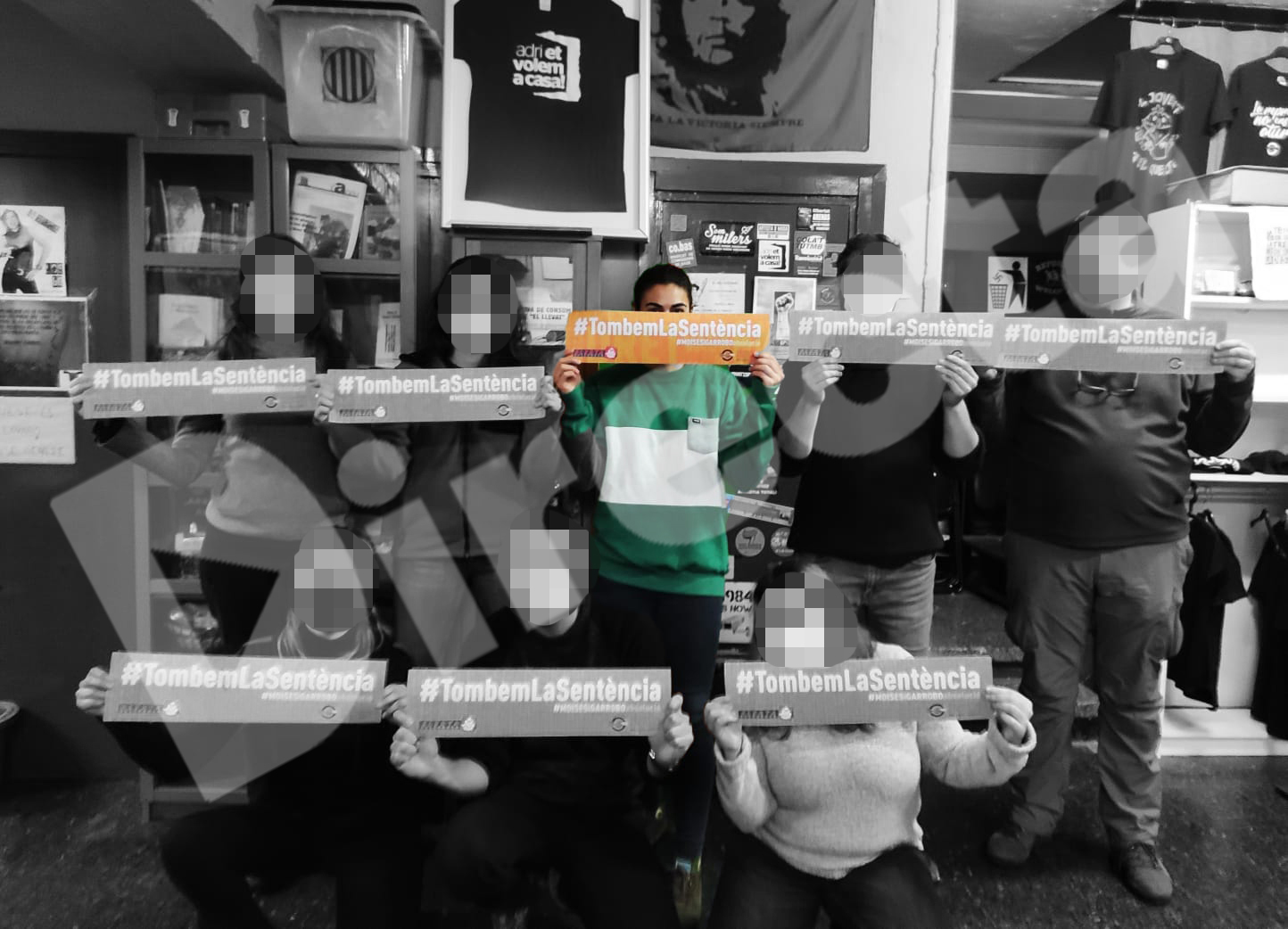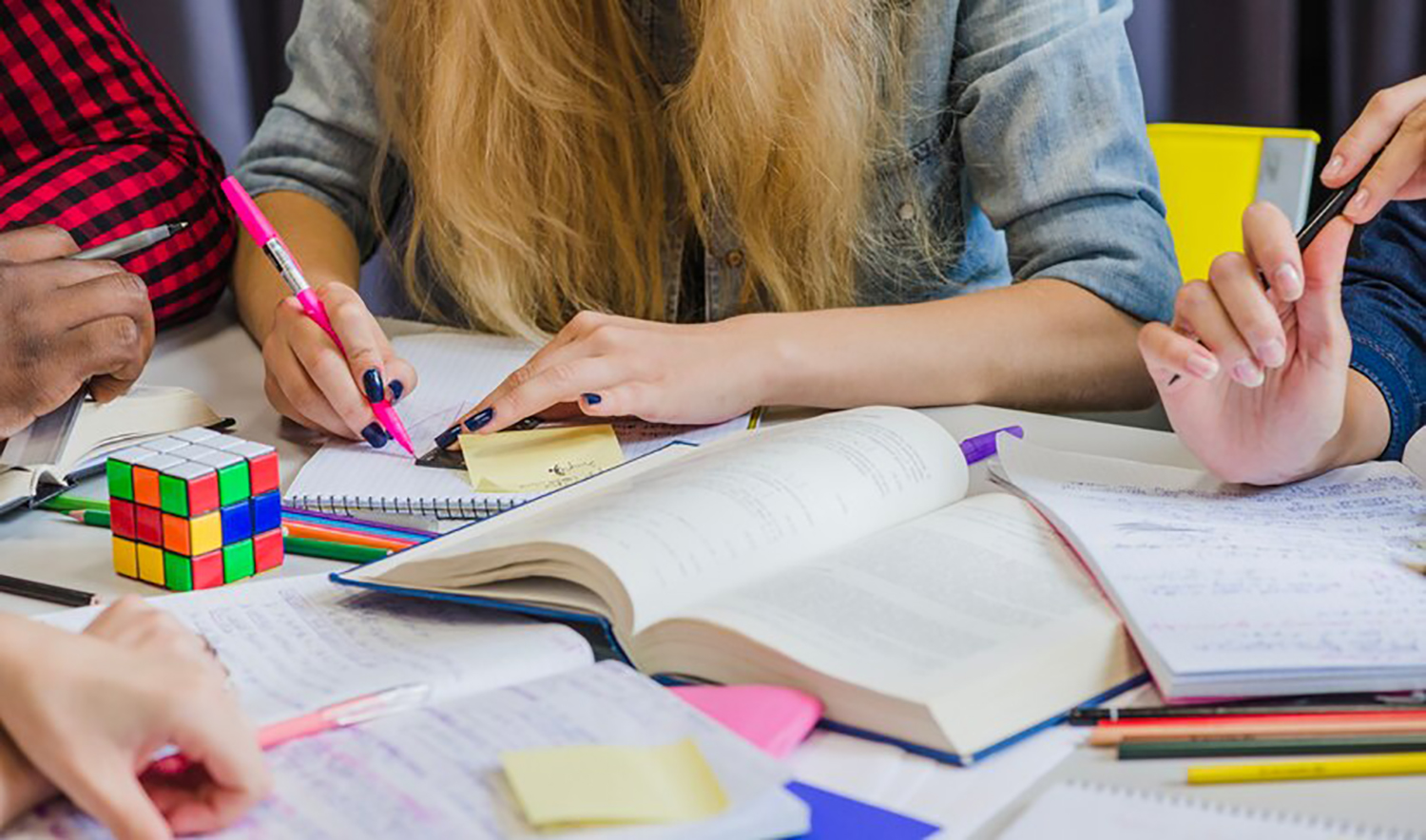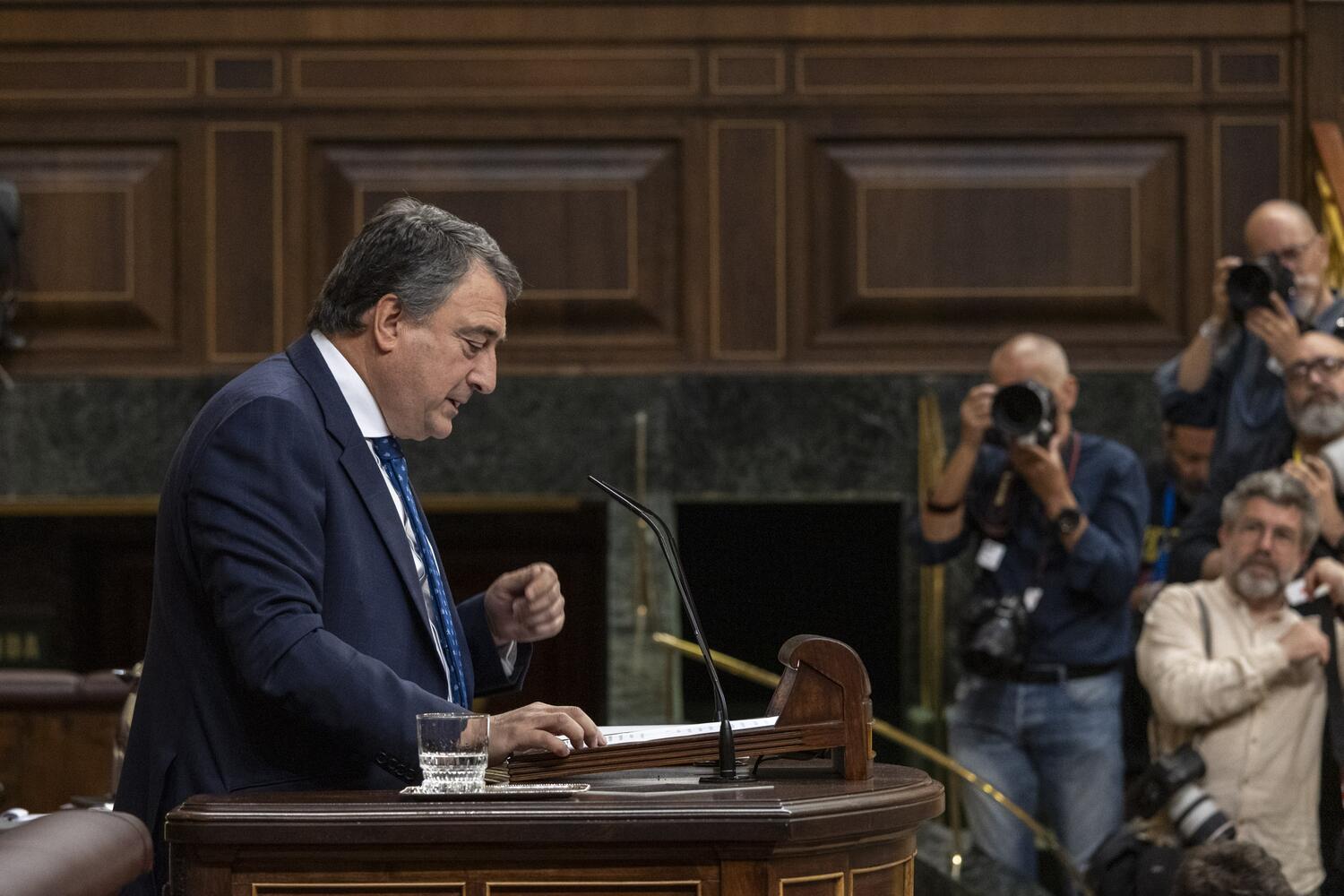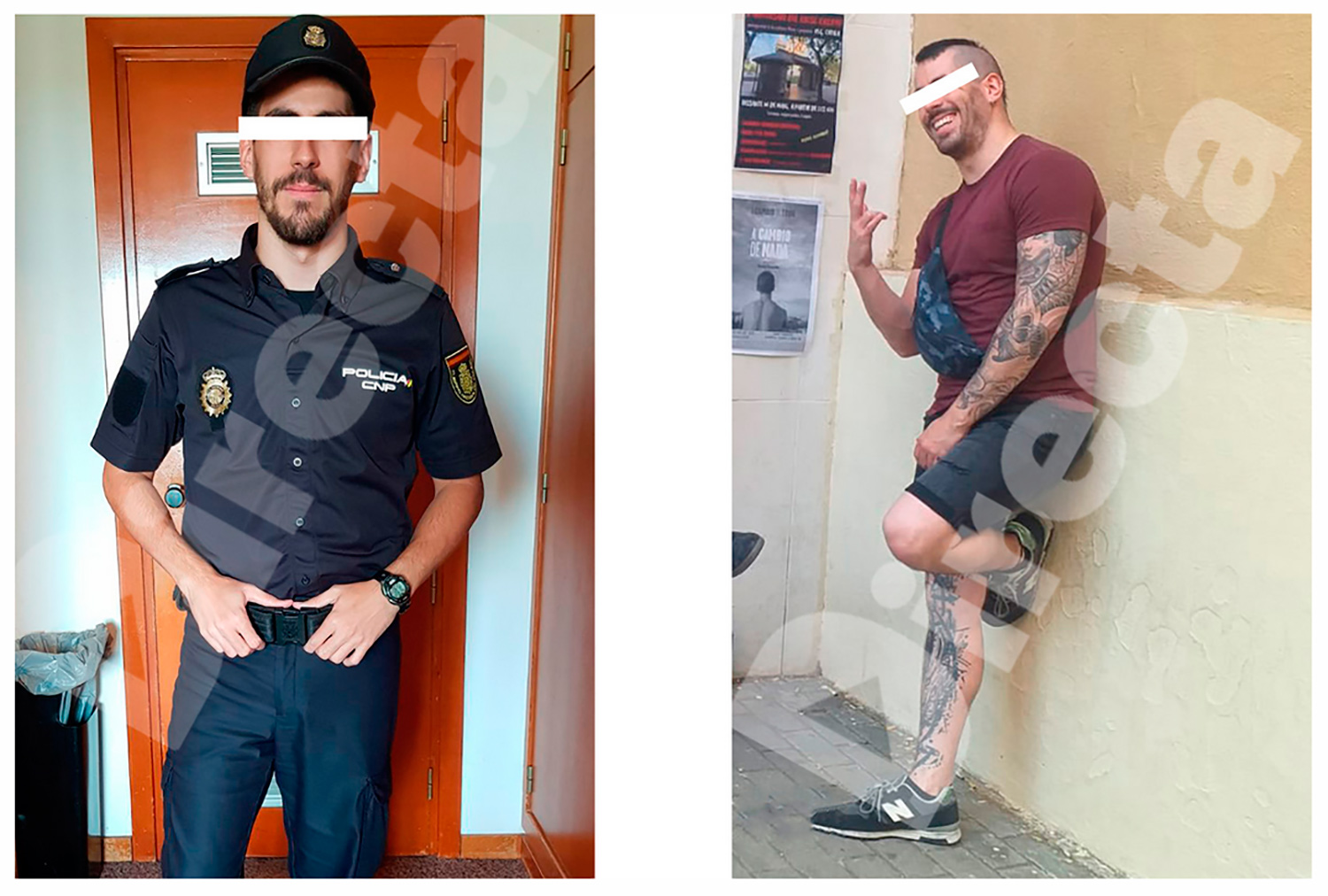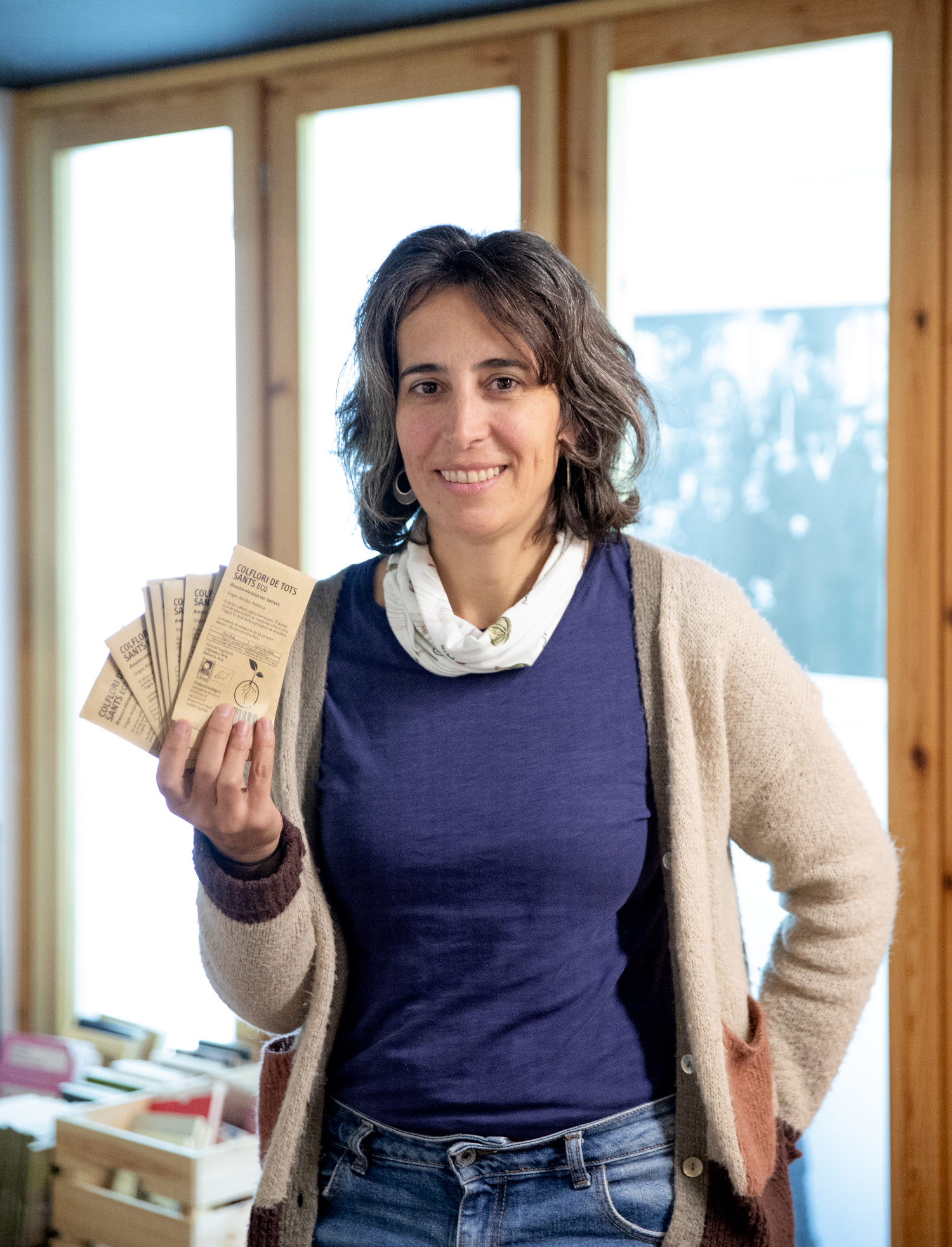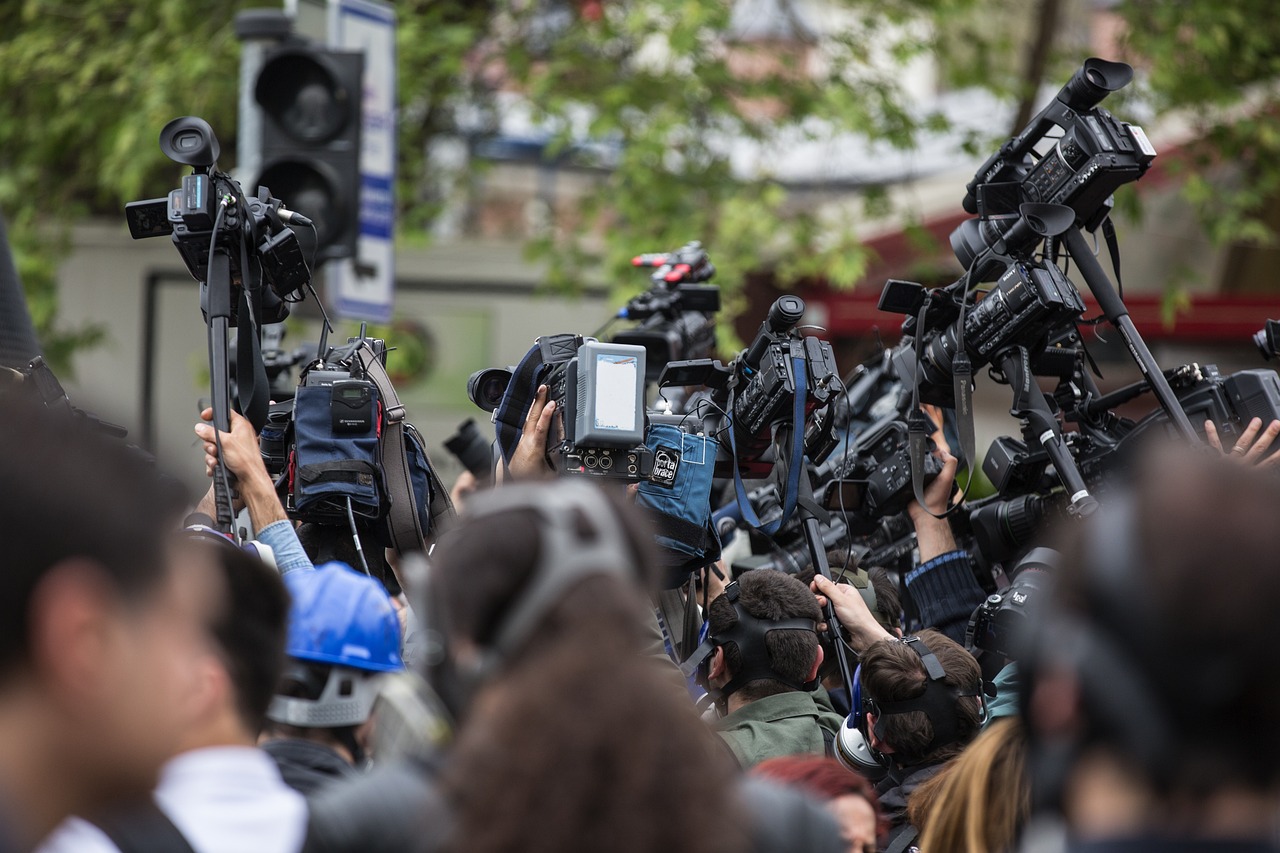"We would like the Abertzale left also to have a framework of alliances with us"
- Albert Botran i Pahissa is a member of the National Secretariat of the Cup and is ranked second in the list of elections to the Congress of Deputies. It is the first time in the history of the Cup that the possibility of attending state elections before the April appointment is discussed. Then the refusal was imposed. Poble Lliure then decided to present himself in coalition with Som Alternative and Pirates of Catalonia, of Albanian Dante Fachín, under the name of Front Republicà, which caused a crisis in the party. In view of the November 10 meeting, the Cup has once again held a debate and decided to present it on this occasion. We have talked to Botran about the motives and objectives of the presentation, about the political situation of the Spanish State and the Catalan countries.

This is the first time that the Cup has appeared in the Spanish State elections. For what purpose?
We want to give a voice to the independence that has not so far been represented in the Congress of Deputies. The two major independence parties have tried, or have hesitated, to partner with the PSOE, as if it were the only option to make progress in investiture. We believe that the direction should be the opposite. We cannot give power to a government for anything that the state recognizes us one day. There must be a minimum, for us it is self-determination and amnesty. We should not support the independence forces for those who do not accept it. Not the sovereigns, who put the space of Catalunya in Comú there.
The Cup decided not to submit to the previous call, but now it did. What has changed since April?
The non-submission was decided by a narrow margin, the Cup has not made a full change of position overnight. What has meant that part of the militancy has changed its attitude? On the one hand, the shameful role played by the independence parties and the sovereigns in Congress has been seen. Another factor is increased repression. With the arrests of the members of the CoR in September we have seven more political prisoners, there it was found that the state made a qualitative leap [the dialogue is done on September 17, three days after the Supreme passed judgment on the independence leaders]. We want to take every opportunity to denounce this situation and to have a speaker.
After the Cup’s decision not to stand up and against the opinion of the Endavant stream, Poble Lliure formed the Front Republicà on his own with other agents. You are a member of Poble Lliure. They showed up, but they did not get representation. What valuation have you made of the hour?
The Front Republicà was on the verge of obtaining representation, with hardly any money and no presence in the media. This has opened the way in part. On the other hand, there was a crisis within the CUP: we were at risk of division, a very delicate moment. But we managed to get back together on the CUP. The risks then have been overcome to a high degree.
"We were
at risk of separation, a very
delicate moment.
But we managed
to meet again."
Has the internal environment changed, then?
It was a critical moment in the organization, but also a moment of pride. I believe that in other respects this disagreement with expulsions or divisions, or even ours at some other time, would be resolved. Here, a thread of communication was maintained at every moment between the parties. This allowed the distance between one of the organizations supporting the CUP and the rest of the militancy not to become an insurmountable chasm.
The Cup has repeatedly insisted that in the last two years it is necessary to make a "effective" republic or "break with the Spanish mental framework". Is it not contradictory to stand for election now?
It is certainly contradictory when we have not presented ourselves on all the previous occasions, giving reasons for this. But we are not dogmatic and we have to look at our ways of acting in order to opt for the most useful ones. Part of the independence movement saw the Cup outside the independence debate. The fact of presenting themselves to these elections calms those voices. We have taken a step forward and we will defend our position in the campaign.
In addition, since October 2017 we have been maturing some ideas. One of them is the need to create more alliances with the other peoples of the State and with popular movements. Representation in Congress can help. In October 2017, there was a profound crisis in the state, but victory was not achieved. One of the most important shortcomings was that no more pockets of solidarity and crisis should be created in the State.

Besides establishing alliances with popular movements, what policies does the Cup intend in Congress itself? It only denounces, based on proposals...
Given the representation we can have, the position of not giving shelter to anyone who does not accept self-determination and amnesty is non-existent. But we want to spread that idea among the rest of the Catalan independence political forces and in Catalonia in Comú. That would be the first contribution of the Cup. Once the legislature makes progress, we are not going to make a standard policy. We find it more interesting to be out of Congress many times than
dentro.La alliance that you raise with the Catalan forces does not seem real at the moment.
In the last two years, the gap between us and the rest of the independence parties is probably the largest in history. But it's not the time for despair, quite the opposite. Our proposal connects this week’s mobilization and feelings with the citizens, with the aim of going to the offensive. The two major independence parties, on the other hand, are looking to reach agreements with the state, to reduce tension because we have no strength... That is what is being done in the last two years. We are a small force, but we believe we connect with more people than they are.
Will you try to make alliances with the political forces of Euskal Herria?
We have historically had a direct relationship with the Abertzale left. We want the struggles to be coordinated as far as possible. But we are aware that we are two different peoples and that, therefore, the rhythms, alliances or objectives may be different.
Sortu is integrated into EH Bildu, while EH Bildu has reached an agreement with ERC to form the Abertzale coalition.
We would like the Abertzale left also to have a framework of alliances with us. And we don't rule it out. We believe that the Abertzale left still has more in common with the Cup than with ERC, although perhaps for tactical reasons they agree more. We are a socialist, anti-capitalist, internationalist force: we interpret the world from the same political culture as the Basque Left.
Have quantitative targets been set?
Our voice in the campaign is already a victory. As for the results, all the surveys give us representation. This is important because the main political forces often use the useful vote argument to separate small ones. We would be happy to have representation.
"It is only by bringing this state
and this regime to the crisis that we can get the right of self-determination recognised"
Beyond the elections, what analysis do they make of the situation of the Spanish State?
After the referendum, the independence forces regressed and sought a policy of understanding with the PSOE in search of a consensual process. It has become clear that this is not possible. Repression has been maintained, the policy of the PSOE barely differs from that developed by pp. There is no possibility of dialogue or referendum agreed. It has been seen that the PSOE is at best the kind face of the regime, but the regime in the end. The conclusion is that it is only by bringing this state and regime to the crisis that we can achieve the recognition of the right of self-determination. I believe that the popular movement that has surprised us all this week is on that path. The tsunami initiative, for example, was terrible.
In the cycle that ended in October 2017, the CUP demonstrated a great capacity for social influence, despite the minority power: to propose and create debates, to disseminate a certain vision... From the Basque Country it seems that this capacity has been reduced. What is the state of health of the Cup?
The results of the last two elections were not good. In those of 21 December we went from ten to four parliamentarians. In the municipal elections we have also had poor results. That's what has led us to wonder why we almost don't connect with people, and we're still in that process. The decision to run for the Spanish elections is part of this desire for connection. I believe that it can help us to win presencia.Hay
than to say that this decrease of four in ten parliamentarians took place in a special situation, and all the surveys give us better results.

The Cup’s policy has historically been based on the municipality. Have you made a detailed analysis of the results of the municipal elections?
We've detected a disconnect from our social environment. People have long recognized us as if we had lost the character of a useful tool. This forces us to make self-criticism, we cannot accept the loss of that weight. But, on the other hand, in these two years the regime has stabilised. The PSOE replaced the PP, the main independence parties regressed... This cycle has affected us, but also the left coming from the M15, have had very bad results. In this stabilisation phase, a breakthrough option like ours is more difficult. We suspect that the ruling has changed the situation: a new cycle of mobilizations has been opened, the horizons of rupture have been reinforced, which makes us necessary actors in the eyes of many people.
No one has long given a clear roadmap within independence. Does the Cup have one for the Catalan countries?
We have no proposal closed today, and even if we had it, I don't know if we should present it as the CUP. There is a need for pre-cooking work so that all the independent, even sovereign, forces can agree a few minimums to move forward. We believe that the right to self-determination should be made a priority. Not only do we need to join the independentists, but also the defenders of the right to self-determination. We have to recompose that bloc that he defended on 1 and 3 October, putting the State back in contradiction. We must now add the amnesty for the 16 political prisoners we have and for the thousand people who are accused in connection with the referendum. Self-determination and amnesty can be the axes on which to build a roadmap, and can be assumed by a social majority.
The situation is not easy. How to combine the short step with the strategic look?
Managing political rhythms is the art that political organizations should be able to practice: when to slow down, when to speed it up ... There is no manual with the formula of independence. Since October 2017 we have drawn some conclusions. It is true that in Catalan society there is a sector that rejects independence in a decisive and active way. One of the priorities must be the deactivation of this sector. Among those who are not independentists, we must also be able to join some parts of the independence programme. To this end, it is essential to develop the social programme of independence. Not only do we have to claim the right to self-determination, even though it has taken us a long way; we also have to claim that we want independence and the republic to gain social rights. Pensioners, precarious pensioners, women, nature ... We need an absolute majority.
There is a lot of talk about disobedience. What's the place they give you?
Despite not coming from a revolutionary tradition, non-violent disobedience was well understood by many citizens on 1 October. The change occurred then, deep. The effectiveness of the massive nonviolent disobedient strategy was demonstrated. Novelty was of a massive nature, as disobedience has been practised by many citizen movements for a long time. It was a contribution to the political culture of the country. On 15 October we saw him again at El Prat airport. Although the participants were younger and more left-wing, there was great diversity.
Lau agenteak lesio-delituengatik ikertzen ari dira eta horrek galarazten du 2024ko amnistia aplikatzea. Polizia horietako batek, ustez, gomazko bala batekin begi bat zartatu zion Roger Español kataluniarrari.
Milatik gora lagun bildu ziren larunbatean Ipar Kataluniako Perpinya herrian La Bressola ikastetxeak defendatzeko. Murgiltze eredua katalanez eskaintzen duten ikastetxe horiek arrazoi ekonomikoengatik larrialdian daudela adierazi dute eta erakunde publikoei eskatu diete babes... [+]
Lagun asko sumatu dut kezkatuta euskaldun gero eta gutxiagok ahoskatzen duelako elle-a. Haur eta gazte gehienek bezala, heldu askok ere galdu du hots hori ahoskatzeko gaitasuna, idatzian ere nahasteraino. Paretan itsatsitako kartel batean irakurri berri dugu: altxorraren biya... [+]
“Askatasunaren” izenean, ikastetxean zein oinarrizko hizkuntza nahi duten galdetu diete guraso valentziarrei. Helburua katalana zokoratzea zen. PPren eta Voxen gobernuak ez du lortu. 33 eskualdeetatik 22tan katalana gailendu da. Emaitzarekin oso pozik agertu dira... [+]
Otzandu egin gara, katalanak eta euskaldunok, ekaitzaren ondoren. Saiatu ginen, bai; sendo ekin genion, eta gogor kolpatu gaituzte; ezin izan genien gure helburu zuzen, ezinbesteko, sakratuei eutsi. Eta porrotaren mingostasuna dastatu dugu, eta bigundu egin gara irabazleen... [+]
Directa hedabidearen ikerketa batek ondorioztatu du 2018. eta 2020. urteen artean murgildu zela Kataluniako Palestinaren aldeko eta ezker independentistaren mugimenduetan, "Belén Hammad" izenaren pean. Nortasun agiri faltsu batekin Kataluniako Gobernuak... [+]
570.000 familiak euren haurren ikasgeletako hizkuntza nagusia zein izango den bozkatzeko aukera dute martxoaren 4ra arte: gaztelera edo katalana. Garikoitz Knörr filologoaren eta euskara irakaslearen arabera, kontsultak "ezbaian" jartzen du katalanaren zilegitasuna... [+]
Azken egunak garrantzi handikoak izan dira Bartzelonan, etxebizitzaren aldeko mugimenduarentzat eta espekulatzaileen aurkako borrokarentzat. Urtarrilaren 28an, polizia-armada batek Raval auzoko Massana Zaharrari [zentro sozial okupatua] eraso egin zion goizaldean, aurrez abisatu... [+]
In 2011, the powerful 15-M movement broke out, which put the Catalan Govern in a hurry. Among other things, on that occasion the Police ran into the indignant camp of the Plaza Cataluña de Barcelona and besieged the Parlament on the day that the activists had to approve the... [+]







